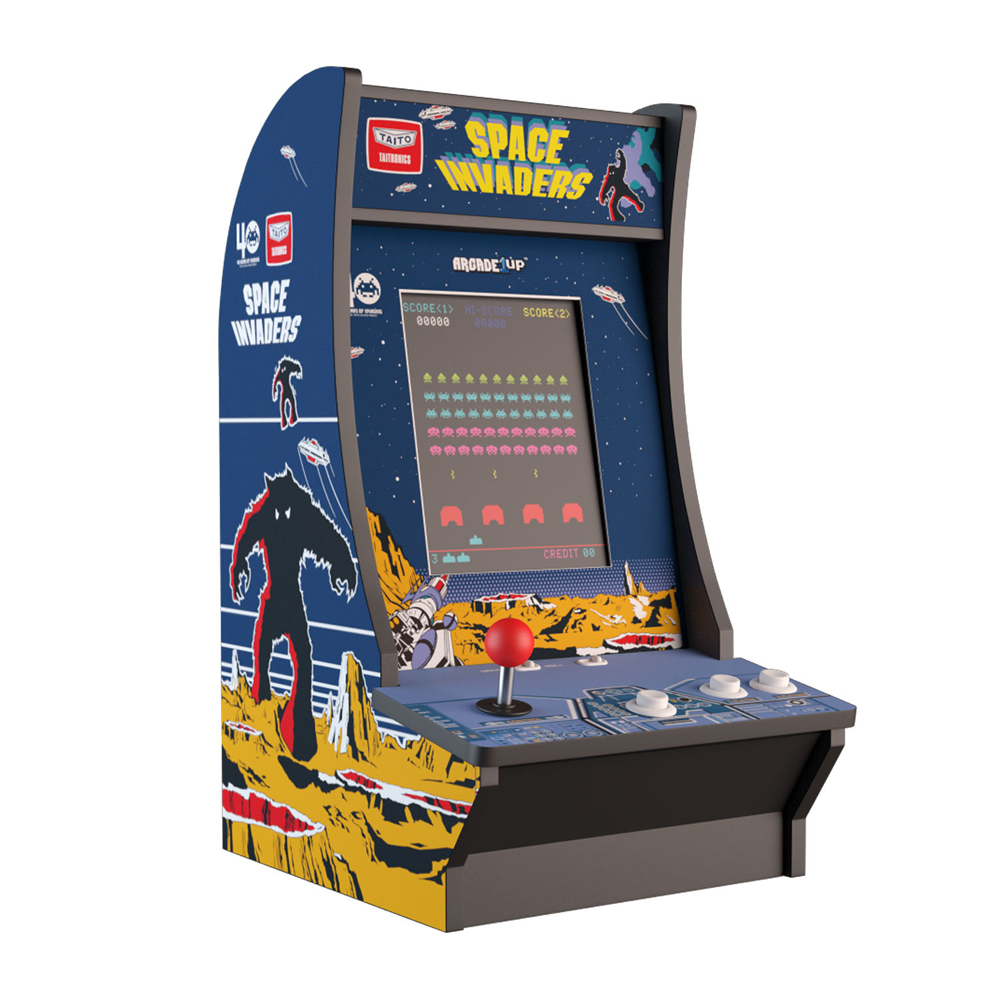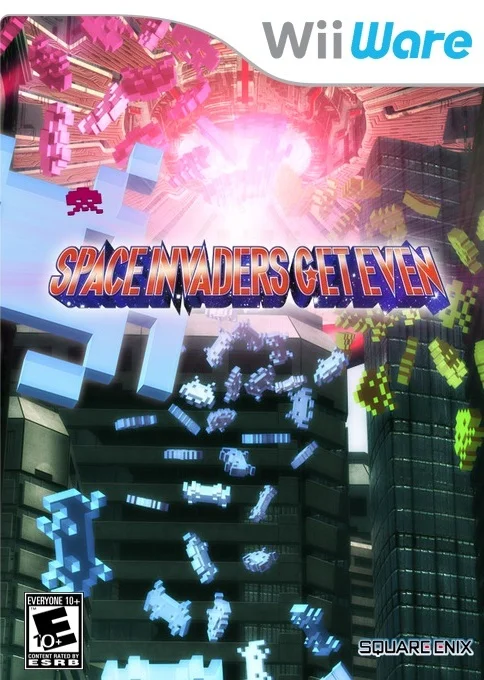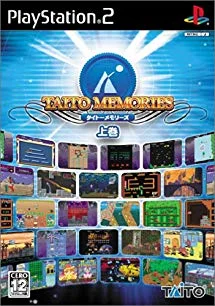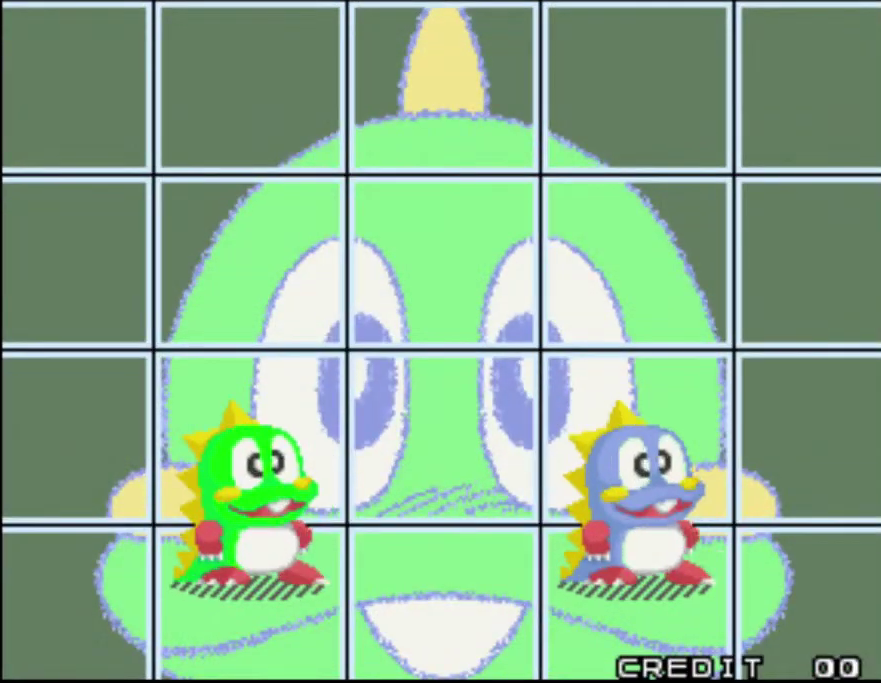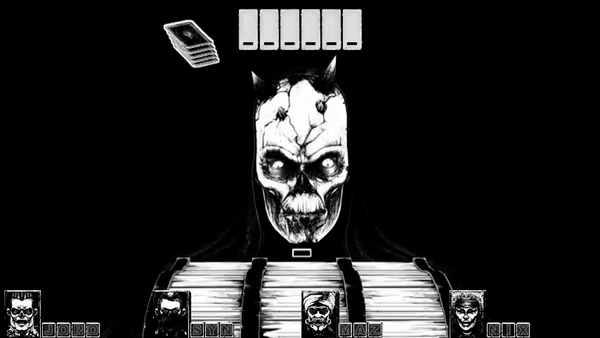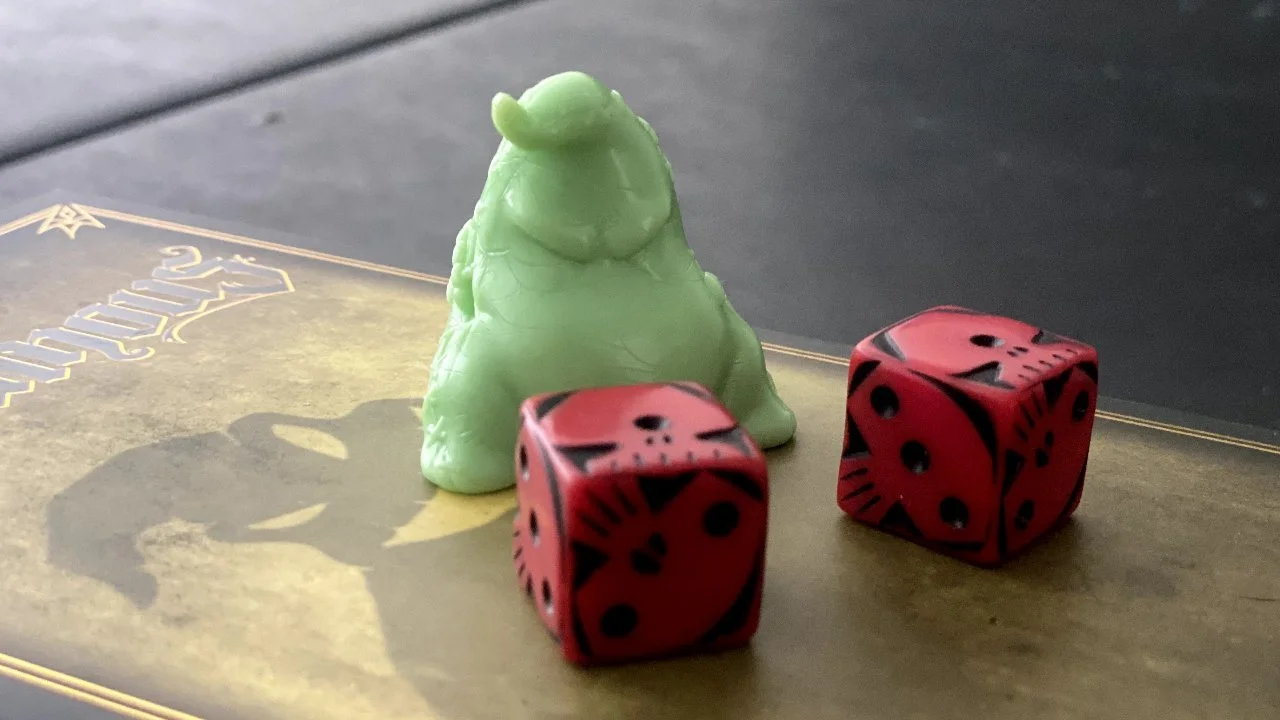Welcome to another exciting installment of Developer Spotlight: The segment where we give some history and insight on game makers! With the recent release of the Arcade1Up Space Invaders machine, I figured today we shine the spotlight on one of my favorite game makers: Taito!
Taito was founded in 1953 as "Taito Toredingu Kabushiki gaisha" (roughly equivalent to "Taito Trading Co., Ltd.") by Jewish Soviet expatriate to Japan, Michaell Kogan (His name is transliterated to "Micheal Kogan", he was sometimes known by the nickname "Misha"). Taito was a vodka distribution company, the first of it's kind in Japan. The company would later distribute vending machines and jukeboxes, before moving on to production. Taito eventually remade itself as an amusement company in the late '60s and early '70s. Some of their earlier electromechanical games made reference to their alcoholic origins (Such as the machine, "Ice Cold Beer"), but this was later phased out. In 1972, they changed their name to Taito Corporation.
During the '70s, when the video arcade industry was still emerging, Taito developed several redemption games for arcades, and eventually graduated to full-on video game development. A man named Tomohiro Nishikado was responsible for many of their earlier video games: Soccer (Which Nishikado claims to be the first video game ever produced in Japan!), Speed Race and light gun game Western Gun before being assigned to the "Space Monsters" project, later re-titled Space Invaders. Nishikado spent a year developing both the hardware and software necessary for Space Invaders entirely on his own.
Midway published Space Invaders outside of Japan
Space Invaders was a massive success and was a major founding pillar of The Arcade Golden Age, along with Breakout and Pong. There's a widespread, apocryphal story about how the game caused yen coin shortages in Japan. It's largely been debunked. Nonetheless, Space Invaders created a demand for video arcades and sent people there by the droves. The runaway success made Taito a billion dollar company.
Other games followed: Lunar Rescue, Crazy Balloon, Balloon Bomber, Wild Western, Phoenix. Phoenix is notable because it is considered to be the first video game with a boss battle. However, none of these game replicate the success of Space Invaders and largely become doomed to obscurity.
Nevertheless, with it’s pockets lined up, Taito expands. Their North American division creates the memorable arcade game Qix (pronounced 'kicks"), and the less-memorable Missile Command copycat Colony 7.
Sadly, Taito's founder, Michaell Kogan died unexpectedly in 1984 while on a business trip.
Two of Taito's most notable releases in the '80s were Elevator Action and Bubble Bobble. Bubble Bobble was noted for being a cooperative platformer game. But the game didn't really catch on it its day. It would be one of those titles vindicated by history. The protagonist, Bub would become Taito's unofficial mascot and appear in a few games beyond his native habitat.
In 1985, Taito was made a subsidiary of Japanese ceramics and electronics manufacturing giant Kyocera.
In the '80s, Taito develops Arkanoid: perhaps the most notable of all Breakout clones.
During the '80s and the early '90s Taito dips its fingers into just about every game genre out there:
Action-Platformer: Elevator Action, Elevator Action Returns, Bubble Bobble, Rainbow Islands
Beat 'Em Up: Dungeon Magic, Arabian Magic, Ninja Kids, Pu-Li-Ru-La
Cabal shooter: Battle Shark, Operation Thunderbolt
Driving: Continental Circus, Chase HQ
Fighting: Violence Fight
Puzzle: Tube-It, Cameltry, Palamedes
Shoot 'Em Up: Space Invaders Part II, Return of the Invaders, Super Space invaders 91, Darius, Exzisus
Sports: Ah Eikou No Koshien (A baseball game), Hat Trick Hero (a soccer game), The Great Swordsman (Fencing)
Taito also expands to the home market by releasing a few games on the NES: notably Bubble Bobble which fared better in homes than in the arcades. The game was notable, but not exactly a smash-hit.
In 1992, Taito rolled out some new dedicated hardware: the Taito's F3 System (Also known as Taito Cybercore, that's what it was promoted as in North America). F3/Cybercore was comparable to SNK's NEO GEO MVS: several games could be built into one machine and you could swap out between them. Besides that, the games looked and sounded great! Puzzle Bobble 2, Elevator Action Returns, Puchi Carat, RayForce, Dungeon Magic and Cleopatra Fortune were all notable Taito F3 games and are all some of my favorite arcade games. Funnily enough, Puzzle Bobble/Bust-a-Move would later migrate to SNK machines.
In 1993, Taito reissued various versions of Space Invaders in one machine: Space Invaders Deluxe.
Unfortunately, the mid-'90s were a tough time for the company overall. Though Taito F3 hardware boasted some of the best graphics and sound out there, arcade operators were more interested in games with polygonal graphics. They wanted games that were guaranteed to get people's quarters like Mortal Kombat and Street Fighter or games that were on the graphical cutting edge, such as Virtua Fighter, Daytona USA or Tekken. The games didn't catch on with consumers, either. The video arcade industry, Taito's native environment, was in a major decline in the '90s.
Things started to slow down significantly. They would not publish their own games internationally anymore; relying on other companies to get their games out there. Activision made their own version of Space Invaders, The Bubble Bobble and Puzzle Bobble games were nabbed by Acclaim and other games were developed by having the Taito likeness licensed out to other companies. Titles such as the PS1 version of Cleopatra Fortune, Kikiki Advance and Elevator Action Advance) were published by the likes of Natsume, Altron, and Mediakite.
Their arcade development, their livelihood, declined heavily with them releasing fewer and fewer titles (Cleopatra Fortune, G-Darius, Puchi Carat). By the end of the decade and early into the 2000 oughts, there were hardly making any games at all. In 2005 Square-Enix became the majority shareholder and that marked the end of classic Taito as we know it. By this point, most of their old staff had moved on to other companies and projects such as CyberConnect2, G.Rev or left the industry altogether. In 2006, a new Taito company is created and this one is a fully-owned Square Enix subsidiary.
Under Square-Enix, Taito games are licensed to other companies or are developed at Square-Enix (or one of their subsidiaries). Several games capitalizing on past memories were developed and released: Space Invaders Get Even, Space Invaders Infinity Gene, Bubble Bobble Plus and Elevator Action Deluxe.
Things have generally been slow since the Square-Enix buyout. Taito hardware still lives on. The arcade version of Street Fighter 4 was developed on Taito's long-lasting and highly versatile Type X board. Several Japanese arcade games (Such as the Raiden series of shumps) are made for this hardware. In 2018, Taito announced on their website that they plan on starting arcade development in the foreseeable future. Space Invaders celebrated it's 40th anniversary that summer.
Taito also owns and operates the Japan-exclusive Taito Game Station arcades which feature THOUSANDS of arcade games (Not limited to just Taito games) and other redemption games. They are a beloved tourist attraction.
Taito's golden days are long behind them, but the story is far from over.
If you want to explore Taito’s arcade past in your home, I’d recommend tracking down Taito Memories and Taito Memories 2 for PlayStation 2 and OG Xbox.
If you have more expensive tastes and own a Japanese PlayStation 2, you can try the (Japan-only) Taito Memories series: Taito Memories Jokan, Taito Memories Gekan, Taito Memories II Jokan, Taito Memories II Gekan. This series produced during the Square-Enix buyout had a limited print run and are all very expensive.
